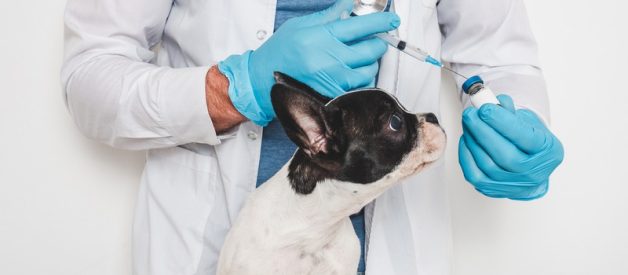When it comes to our furry friends, keeping them healthy and happy is a top priority. One of the most crucial aspects of pet healthcare is sticking to a proper vaccination schedule. But with so many different vaccines and timelines, it can be a bit overwhelming. In this guide, we’ll break down everything you need to know about pet vaccination schedules, so you can ensure your pet gets the best care possible.
What Are Pet Vaccination Schedules?
Pet vaccination schedules refer to the recommended timeline for administering vaccines to your pets. These schedules are devised to provide maximum immunity against various diseases by giving vaccines at specific intervals. Puppies and kittens usually require a series of vaccinations in their first few months, followed by booster shots as they grow older.
Why Vaccination Matters
Vaccinations are essential for preventing serious and potentially life-threatening diseases in pets. They work by introducing a small, harmless amount of the disease-causing organism into your pet’s body, stimulating their immune system to produce antibodies. This prepares your pet’s body to fight off the disease if they are exposed to it in the future.
Core vs. Non-Core Vaccines
Vaccines are generally categorized into “core” and “non-core” groups. Core vaccines are considered essential for all pets, while non-core vaccines are recommended based on your pet’s lifestyle and specific risk factors.
-
Core Vaccines: These include rabies, distemper, parvovirus, and adenovirus for dogs, and rabies, feline calicivirus, feline herpesvirus, and feline panleukopenia for cats.
-
Non-Core Vaccines: These are optional vaccines that may be recommended based on factors like geographic location, pet’s lifestyle, and potential exposure to diseases.
Puppy and Kitten Vaccination Schedules
For puppies and kittens, vaccinations usually start at 6-8 weeks of age. Here’s a typical vaccination schedule for them:
Puppies
-
6-8 weeks: Distemper, Parvovirus, Adenovirus (DHPP)
-
10-12 weeks: DHPP booster
-
14-16 weeks: DHPP booster, Rabies
-
12-16 months: DHPP, Rabies
Kittens
-
6-8 weeks: Feline herpesvirus, Feline calicivirus, Feline panleukopenia (FVRCP)
-
10-12 weeks: FVRCP booster
-
14-16 weeks: FVRCP booster, Rabies
-
12-16 months: FVRCP, Rabies
Adult Dog and Cat Vaccination Schedules
For adult pets, vaccinations are generally given less frequently but still crucial for maintaining immunity. Here’s a look at the vaccination schedules for adult dogs and cats:
Adult Dogs
-
Every 1-3 years: DHPP, Rabies
-
Depending on the pet’s risk factors: Leptospirosis, Bordetella, Lyme, and Canine Influenza
Adult Cats
-
Every 1-3 years: FVRCP, Rabies
-
Depending on the pet’s risk factors: Feline Leukemia
Risks and Side Effects
Although vaccinations are crucial for health, they can have side effects. Most are mild, such as slight swelling at the injection site, low-grade fever, or decreased appetite. In rare cases, pets might experience more severe reactions like vomiting, diarrhea, or difficulty breathing. It’s always good to monitor your pet after vaccination and consult a vet if anything unusual occurs.
Cost of Vaccinations
The cost of pet vaccinations can vary widely based on factors like the type of vaccine, your location, and the veterinary clinic you visit. On average, core vaccinations for puppies and kittens can cost between $20 and $150 per shot. Non-core vaccines might add to the overall cost.
Finding a reliable place for these services is key. If you’re looking for veterinarian services in Clarksville, there are trustworthy providers who offer a wide range of services, including vaccinations and regular check-ups.
Do’s and Don’ts of Pet Vaccination
Keeping your pet on a vaccination schedule involves a few basic do’s and don’ts:
Do’s
-
Do consult with your vet about which vaccines are right for your pet.
-
Do keep a record of your pet’s vaccination history.
-
Do observe your pet for any side effects after vaccination.
Don’ts
-
Don’t skip vaccinations without consulting your vet.
-
Don’t ignore signs of adverse reactions post-vaccination.
-
Don’t forget to schedule annual check-ups for your pet.
Special Cases: Travel and Boarding
If you’re planning to travel with your pet or board them at a pet hotel, make sure their vaccinations are up to date. Many places require proof of vaccinations, especially for rabies and kennel cough (Bordetella). Always keep your pet’s vaccination record handy when planning any such activities.
By keeping up with regular vet appointments and following a proper vaccination schedule, you ensure your pet is well-protected against common diseases. For more specialized care or detailed advice like that from a vet dentist, you can always learn more from your local veterinary professional, who can offer tailored guidance based on your pet’s needs.
Senior Pets and Vaccinations
As pets age, their vaccination needs may change. Senior pets might not require as many vaccines as younger pets, but keeping up with essential immunizations is still important. Older pets have immune systems that can weaken over time, so ensuring they have immunity against serious diseases is crucial.
Boosters and Titer Testing
After the initial series of vaccines, pets will require booster shots to maintain immunity. The frequency of these boosters can vary based on the type of vaccine and the pet’s health status. Some pet owners also opt for titer testing, which measures the level of antibodies in the pet’s blood. This test can help determine whether a pet still has immunity or needs a booster.
Herd Immunity
When a high percentage of the pet population is vaccinated, it creates “herd immunity.” This means that even those pets who can’t be vaccinated (due to medical reasons) are still protected because the spread of disease is minimized. By keeping up with your pet’s vaccination schedule, you’re also contributing to the health of the pet community.
To ensure that your pet continues to be protected throughout its life, regular vaccination is essential. If you’re looking for specific services like vaccinations for dogs at Sango Veterinary Hospital, this is a great resource where you can get detailed information and professional advice.
Wrap-Up
Understanding and following a proper pet vaccination schedule is key to keeping your furry friends happy and healthy. By staying informed, consulting your vet, and monitoring your pet’s health, you can provide the best care possible. Whether it’s a new puppy or a senior cat, vaccinations play a critical role in their well-being. So, stick to the schedule, and don’t hesitate to ask your vet any questions you might have.





